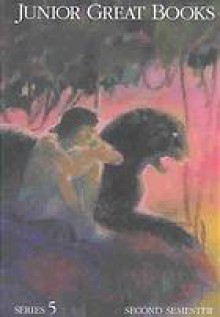
Note: The only short story I'm actually reviewing here is a specific one called "The Prince and the Goose Girl," by Elinor Mordaunt. The rating and review is for that story alone; I have no interest (yet) in the other stories in this collection.
_____________________
The phrase "feminist fairy tale" gets thrown around a lot, but I declare that this story is the most successful at flipping gender stereotypes than any other tale in existence that I know of. I first read it in 4th grade and remember thinking that this story might as well have been written in a historical vacuum, for all that I've never read or heard of any story quite like it. Particularly considering that Elinor Mordaunt is not a modern author, I still have trouble conceiving how she must have come up with it.
Imagine the "Taming of the Shrew" trope, but gender-flipped.
The story starts out with a hilariously overblown description of a great scary prince--so overblown, in fact, that you actually start to take it seriously.
Once there was a great prince who was so great a fighter that no one dared to deny him anything that he asked. [...] Everything the people had was his at the asking, they feared him so, and would all tremble and shake when he came thundering past on his war horse, whose hoofs struck great pieces of their fields from the earth as he passed, and whose breath was fire. And they feared his sword, which was so sharp that it wounded the wind as it cut through it, and his battle-ax that could cut the world in half--or so they said--and his frown that was like a cloud, and his voice that was like thunder--or so they said.
*giggle*
Just in case that's too subtle for you, the passage follows with:
Only Erith, the goose girl, feared him not at all.
The one person unafraid of him is a scrawny little girl! Let's see how that goes.
"He is only a man," she would say. [...] "He eats and sleeps like other men; if you wounded him, he woudl bleed. Someday he will love a woman and be her slave for a while just as any other man is. I wouldn't give that for a great bully!" she added, and snapped her little fingers.
Should we take Erith seriously though? Well, it gets pretty clear that this poke at his overinflated ego is something the prince just cannot ignore, though he tries to cover it up with lots of manly bluster.
The prince laughed a great, big, bellowing laugh, but the red swayed up into his face angrily all the same.
"Where does this chit live?" he demanded.
So what does he try to do? Or perhaps I should ask, what does an all-powerful MANLY MAN try to do in the face of an annoying little girl's perfectly logical baseless insults?
Defeat her with the power of his manly strength/run her over with his horse, of course!
The prince thundered along on his great black horse and presently came to the common.[...]The prince did not draw rein. He thundered straight on. He scattered the geese in every direction. He would have galloped right over the girl if his horse had not swerved just as its hoofs were upon her. Then he drew rein.
Hmmm, although said horse looks to be already developing a growing respect for the girl. How much more savage is this MANLY MAN than his own animal. The prince is, unfortunately, is a little slower on the uptake.
He gets around though. Or at least he starts to. Erith saves him from drowning in a swamp and teaches him correct manners, a.k.a. how to talk to people in a civilized manner. It's quite touching, and a welcome break in the story's satirical tone when Erith (for the first time) gently chastises him for his unfounded arrogance--though I won't quote it here because I've quoted far too much already. He's still got the princely swagger thing going on, however.
This becomes especially obvious when he decides that, rather than trying to assuage his insecurities by putting down Erith, he decides to marry her instead. Does he ask for permission? Nope. He's a prince, remember? And a man! And manly princes can do anything they want! They can conquer annoying girls by making them bow down to their romantic advances!
Except, nope.
What follows is a series of increasingly hilarious marriage proposals on the part of the prince. When she rejects him, he tries to ruin her economic security. But Erith outwits him at every turn, and makes him submit to her terms, not those that the prince has been taught to use by the society that raised him to be the jerkass he is now.
"Will you marry me?" said he.
"No," said she, "and that's flat--not till you learn manners, at least."
Cue a routine that's going to repeat itself quite a while for the next few scenes. He throws a fit of rage, storms off and waits for the next day to propose again.
"Will you marry me?" said he.
"When you kneel to ask me," said she. "Not before."
Cue temper tantrum, attempt at causing financial ruin, Erith laughing at him, etc. Rinse and repeat. Jesus fucking Christ, when will this guy ever learn?
"Are you starving yet?" [asked the prince].
"Far from it. I am richer than I ever was," and she shook her pocket till all the gold danced, for she feared nothing. But it was a foolish thing to do, for in a moment he had whipped out his sword and cut the pocket clean from the petticoat.
"Now will you marry me?" he asked, and held the pocket high and rattled the gold.
"Not I," she said, "if you are so poor that you'd have to live on your wife's earnings." And went her way singing.
Hmmm...
All the humor aside, there is an undercurrent of real-world truth to this story, this scene in particular. I think even as a 4th grader, I recognized that this was the ultimate insult to the prince's masculinity--the accusation that as a potential husband, he was financially inadequate to support a wife. There are studies even today, in our modern age, that men who are married to women who earn more money than they do tend to feel insecure, because for so long in human history it was almost always the men who were the breadwinners. And indeed, it's after this incident that the prince finally collapses emotionally and stops, at last, trying to force Erith to marry him.
The pince was ashamed of himself. He had never felt like it before, and it was very uncomfortable; it made him feel all tired and hot. It was all the goose girl's fault, of course, and he was very angry. But still he wished he had not stolen her money, and the thought of her little shorn head with its dancing curls made him feel for the first time in his life that he had a heart, and that it hurt.
The interesting thing for this scene is that Erith's accusation isn't true ("you are so poor that you'd have to live on your wife's earnings"), at least not in the practical sense. He stole from her, but he still holds the wealth of a prince. He's still perfectly capable of financially supporting a marriage. The issue here isn't an economic one. It's his emotional identification with playing the role of a man, and with himself as an individual. Mordaunt couldn't make this more clear with the vivid psychological breakdown he's going through--look at his attempt to self-justify his actions, shift the blame to the goose girl, and at last realize that his emotional predicament is really his own fault. She DOES like him--"perhaps because he was as fearless and obstinate as she herself." All Erith had been trying to teach him was really to be polite. But for him, it was still too much to ask.
The ending of this story is, in my opinion, the most fascinating part. At this point, the prince realizes that all his domineering attempts to court Erith never held a scrap of hope in the first place. His emotional breakdown--or more specifically, the breakdown of his self-identification with being the powerful man he thought he was, perhaps his entire life--effectively strips him of his physical power as well, to the point that a bunch of robbers who previously feared him suddenly have no qualms about binding and gagging him and leaving him on the roadside to die.
It doesn't matter. "Such a poor thing can shame make of any one of us." The robbers might have been the ones to carry out the action, but it is Erith who has brought him emotionally to his knees. At this point, all he can do is scrabble for his most basic sense of self-respect. '"Anyone who finds me will make a fine mock of me," thought the prince. And he seemed to burn with rage and shame.'
Still though, Erith finds it in herself to pity him--perhaps, Mordaunt suggests, in a way that the prince would never have pitied anyone else. And I think it's important to note that a woman can knock down traditional gender roles without being a selfish, arrogant shrew. Erith is witty and clever and extremely wise, but she also has the traditionally womanly quality of kindness and compassion. And that's totally fine. In fact, it's a quality that women and men can share equally--one could argue that Erith's greatest influence on the prince is teaching him the most important lesson of human empathy.
By a rather staggering twist of irony, it's in this encounter that the prince--at last!--gains the verbal upper hand, ostensibly for the first time in his life against a woman who could actually match his strength. But only after he's learned his lesson.
In a moment she was to the ground, had whipped out the little knife, which she still carried in her belt, and cut the bandage and drew the gag from his mouth. She was turning to the ropes around the wrists and ankles then, when--"Stop!" said the prince.
Then, "Will you marry me, Erith?"
"It's a queer time to be asking that," replied the goose girl.
"You charged me to ask on my knees," answered the prince dryly, "and I am here. Will you marry me now?"
"An' it please you," corrected she, with calm blue eyes.
"An' it please you, dear heart," said he, almost meekly.
As life will eventually tell you, true pride comes from humility. And balance comes from respect. I think Erith would have married the prince when he first asked, overblown reputation or no, if only he'd had the thoughtfulness to respect her role in consenting. And again, Mordaunt does make it pretty clear that Erith likes him--they certainly match each other in sheer stubbornness if not in wisdom, after all. But she'll only marry him when he's ready.
There are many ways to interpret this story of course. I personally see it as the most effective ridicule and deconstruction of culturally-valued masculinity (and femininity) that I have ever read. It's such an amazing literary feat of balance between men and women that I have trouble coming up with any modern story to equal it. (Perhaps the only one I can find is Susanna Clarke's Ladies of Grace Adieau--also a collection of short stories.) There is no oversimplified shaming of gender roles, only a deconstruction of how culture perceives them. Respect between men and women is promoted (in an implied medieval setting, I should add) without devaluing or putting down altogether marriage as an institution. The prince's masculine bluster is broken down, but his character as an individual and as a person is still preserved, implying that overconfident men don't have to learn respect towards women at the expense of their identity--an issue that most modern novels I've read still fail to fully address.
Lastly--a seemingly unimportant detail, but one that caught my attention--there's one scene when Erith cuts off her (long and beautiful, we are told) hair willy-nilly, and for the first time we as readers get to experience a shift in the Male Gaze--undoubtedly a part of the prince's attraction to Erith aside from her personality. The attraction is still there, but the power to define her physical values as a woman undeniably belongs to Erith. And it always will. I can't conceive of a way Mordaunt could have conveyed this message that women, not men, should have control over their own bodies more effectively or subtly than she does here. A minor part, but it should be noted that Mordaunt does end the story with that in mind: "But her head was bare [of a crown] save that of short golden curls."
And all this in what, 19 pages? You have got to be kidding me.
In short: congratulations, Elinor Mordaunt. You, an author born in the 19th century, wrote a story with more moral nuance and sensitivity with regards to feminism than 95% of novels written in the 21st century. I am forever in awe of your literary skill. It's only a pity that practically no one has heard of your story before; we could use more writers like you.


 Log in with Facebook
Log in with Facebook 













